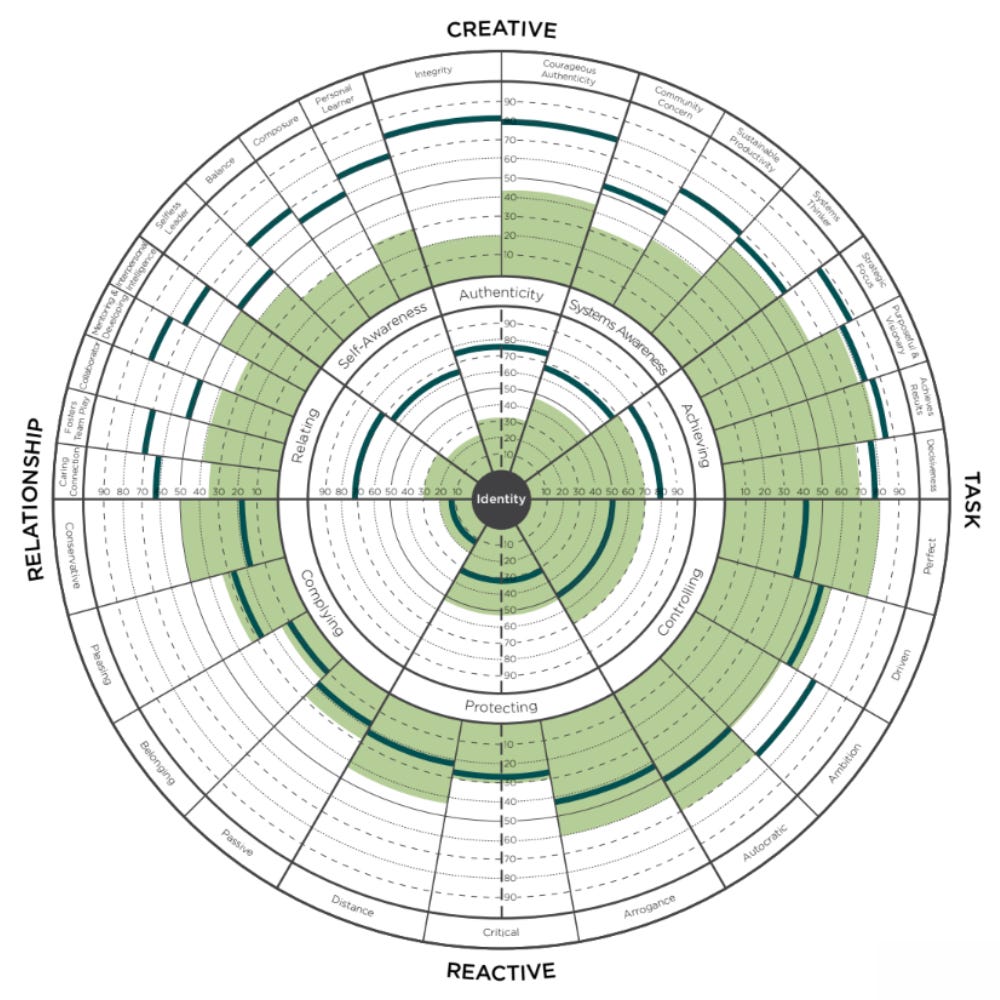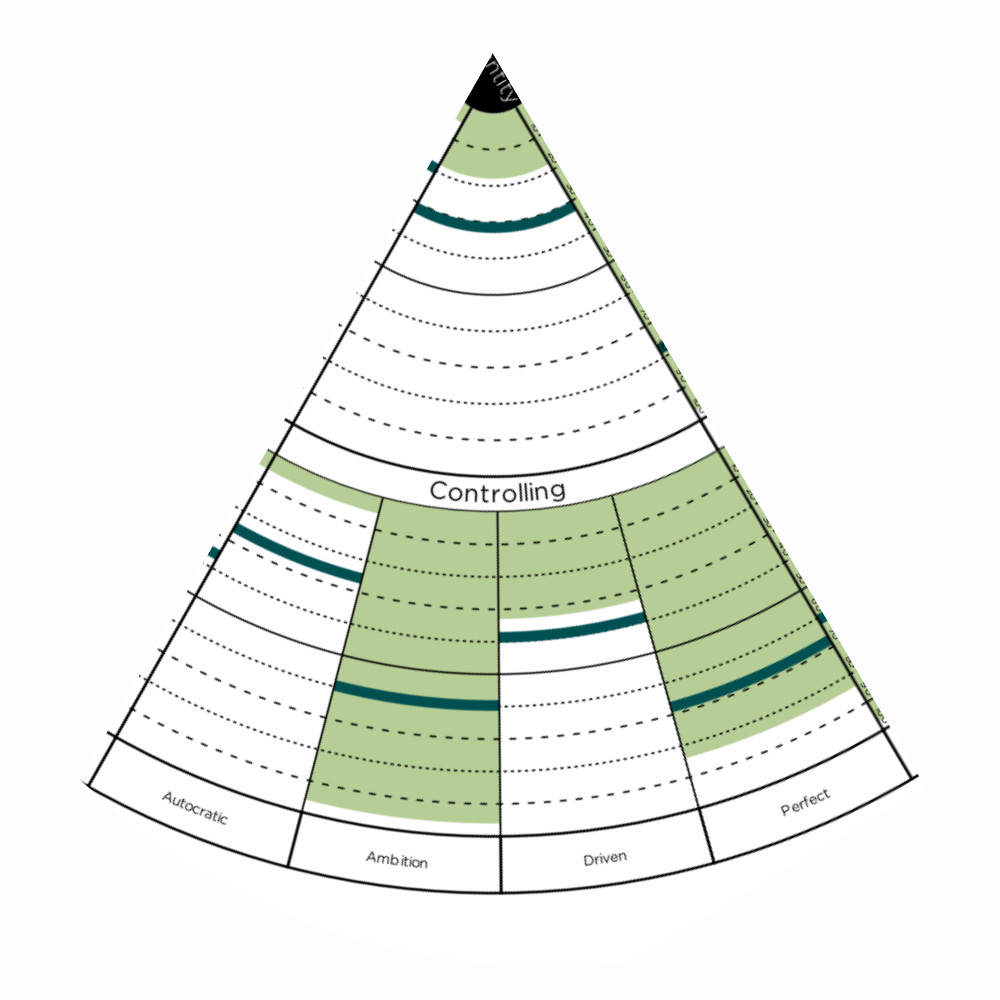How to Grow Beyond Your Reactive Patterns
Learn the inner and outer game of leadership
As the year winds down, the pressure is palpable. I see it every day in my practice—you’re juggling end-of-year deadlines, navigating budget planning, and bracing for the personal and professional demands of the holidays. Together, these stresses create a potent cocktail that tests even the most seasoned leaders.
While this time of year brings heightened intensity, the pressure and stress are constants. How we meet these challenges now and always—whether we rise to face them with vision and purpose or fall back on unconscious reactive tendencies—has a lasting impact on our effectiveness and those around us.
But here’s the opportunity: by getting curious about these patterns now, you can begin laying the groundwork to lead with greater intention in 2025. This article will help you do just that.
Reflection
Before we dive in, take a moment to pause and reflect. The pressures of leadership affect us all, but understanding how it impacts you is the first step.
If you’re feeling particularly overwhelmed right now, my Recognize-Regulate-Reinforce framework can provide immediate relief.
These prompts are designed to help you connect with your behavior under pressure. Reflect on them in your mind or, even better, jot your answers down:
How do you typically react when under significant pressure?
What do you notice about how your leadership affects those around you in stressful times?
If you could change one way you show up under stress, what would it be?
The Inner and Outer Game of Leadership
Every year, I make it a point to invest in one significant training or tool to increase the value I bring to clients. This year, my investment was in the Leadership Circle Profile (LCP) Certification.
The LCP is a powerful tool for strategic leadership development, offering a comprehensive view of performance by linking leadership competencies to measurable business outcomes. It provides three essential insights:
How others experience your leadership: The LCP gives you valuable feedback on the gap between your self-perception and how others see you, helping you align your intentions and impact.
A clear connection to results: By evaluating reactive tendencies alongside 18 science-backed creative competencies directly linked to leadership effectiveness, the LCP reveals how your leadership style impacts measurable outcomes.
Deep self-awareness: It uncovers the underlying behaviors and mindsets driving—or hindering—your performance, enabling transformative growth.
One of the many takeaways from this training is the framing of the inner and outer game of leadership.
The inner game encompasses your beliefs, assumptions, and internal operating system—essentially, who you are as a leader.
The outer game represents your skills, behaviors, and strategies—what you do as a leader.
For the purposes of this article, we’re going to focus on the inner game, specifically how you react under pressure.
Compliers, Controllers, and Protectors
Under pressure, our reactive tendencies often surface, influencing how we lead and how others experience us. These tendencies—complying, controlling, and protecting—are deeply tied to our identity, fears, and strengths. While they may initially feel like coping mechanisms, they can become liabilities if left unchecked.
Let’s explore each tendency and how it shapes the way you lead.
Complying: The Heart Type
Compliers form their identity around relationships, leveraging their big-hearted nature to connect with others. At their best, they bring compassion, kindness, and emotional intelligence to leadership.
Gifts: Compliers excel at building strong relationships, fostering harmony, and supporting others. They see themselves as good and worthwhile because they are kind, caring, and supportive.
Core Fear: Rejection. The fear of not being liked or accepted often drives their behavior.
Risks: To gain approval or maintain harmony, compliers may give up too much power, leading to indecision, passivity, or people-pleasing. Their self-worth becomes tied to others’ acceptance, which can prevent them from making tough decisions or asserting their own ideas.
Behaviors Under Pressure: Indecisive, overly conservative, and excessively deferential, compliers may fail to lead assertively, creating inefficiencies or eroding trust in their leadership.
Controlling: The Will Type
Controllers form their identity around their ability to get results. They see themselves as valuable when they are achieving, pushing for growth, and driving priorities forward. At their best, they inspire action and accomplish important goals.
Gifts: Controllers are masters at achieving results. They excel at organizing resources, setting objectives, and driving aggressive growth. Their ability to execute under pressure is unparalleled.
Core Fear: Failure. A deep fear of falling short or appearing incapable drives their need to take control.
Risks: Controllers often take power at the expense of others, viewing team members as resources to achieve their goals rather than as collaborators. This tendency can inhibit teamwork and creativity, alienating those they lead.
Behaviors Under Pressure: Controllers micromanage, fail to delegate, and resist collaboration. Their single-minded focus on outcomes may stifle innovation and diminish others’ ability to engage meaningfully.
Protecting: The Head Type
Protectors form their identity around intellect and rationality. They establish their sense of worth and security by demonstrating their analytical and critical capabilities. At their best, they remain composed and rational, providing clarity in chaotic situations.
Gifts: Protectors are intellectually brilliant and deeply rational. They excel at staying calm under pressure and offering clear, logical perspectives during conflict or uncertainty.
Core Fear: Vulnerability. To avoid feeling exposed, they detach emotionally and rely on their intellect to maintain control.
Risks: Protectors can become overly analytical, distant, or critical, creating a perception of coldness or arrogance. By “playing from the neck up,” they may disengage from their team emotionally, which can erode trust and connection.
Behaviors Under Pressure: Protectors may withdraw, overanalyze, or dismiss others’ emotional needs. Their tendency to remain detached can create a barrier to collaboration and make them appear unapproachable.
How to Use These Insights
As you reflect on these patterns, consider:
Which of these tendencies resonate most with you?
How do you see this pattern showing up in your leadership under pressure?
How might your team or colleagues experience these behaviors?
Understanding your default tendency is the first step toward leading with greater intention. These tendencies aren’t permanent—they’re patterns, and patterns can change. With awareness, intention, and feedback, you can start to close the gap between your self-perception and others’ experiences.
The LCP 360 assessment provides a powerful way to uncover these blind spots, offering clear, actionable insights to help you align your leadership with your vision and values.
My Own Reactive Tendency
To bring this insight to life, I want to share my own experience and assessment result in this area.
When I’m under stress, my default reactive tendency is to control. At its core, this behavior stems from the belief that “I am my results.” This belief drives a hyper-focus on outcomes—micromanaging details, setting overly high standards, and sometimes neglecting the bigger picture.
I can see the cost of this tendency now but more so when I was leading teams. When I operated from this place, I unintentionally created distance between myself and my team, missed opportunities for collaboration, and carried more weight than I needed to.
Now, when I notice myself slipping into control mode, I pause and ask: What’s the bigger purpose here? This small shift helps me reconnect to my vision, trust those around me, and operate with more intention.
Recommendation: Dive Deeper with the LCP
The LCP 360° assessment offers a powerful way to understand your leadership—both how you react under pressure and how others experience you. It connects your inner game (mindsets and beliefs) with your outer game (behaviors and skills), revealing insights most leaders never uncover on their own.
What sets the LCP apart is its benchmarking against the world’s most effective leaders, helping you identify strengths, blind spots, and self-limiting patterns. With this clarity, you’ll gain a personalized path for growth and actionable strategies to close perception gaps, maximize your impact, and align your leadership with your values.
If you’re not ready to take the assessment yet, I recommend diving into the book Mastering Leadership: An Integrated Framework for Breakthrough Performance and Extraordinary Business Result by Robert J. Anderson and William A. Adams.
As we enter a new year, now is the perfect time to invest in your growth. Whether you explore the LCP assessment or begin with Mastering Leadership, the clarity and tools you gain can truly develop your effectiveness.
Final Note
The best leaders aren’t perfect—they’re self-aware. They take the time to understand their patterns, refine their approach, and lead with greater intention.
As you step into 2025, give yourself the gift of deeper self-awareness. I encourage you to reflect, seek feedback, and commit to the inner work that unlocks your intended leadership impact and business performance.
Wishing you a safe and joyful holiday season,
Amanda
Interested in exploring my executive coaching practice?
I work with CEO & C-Suite executives on three key levels:
The Strategic: Helping leaders gain clarity, decisiveness, and new pathways of thinking to address the strategic challenges of the business.
The Leadership: Enabling leaders to evolve and scale their leadership capabilities in line with what the business needs.
The Inner Work: Doing the inner work that allows the leader to truly thrive as a human being.
I offer a complimentary discovery session to assess fit. I’d love to hear from you.
ICYMI
My dad, Alan Levy, shares timeless wisdom about his journey through sobriety, the principles behind his success in commercial real estate, and how he’s cultivated a vitality and optimism that defines his 80 years.
Amy Kilpatrick, Chief Marketing Officer at ActiveCampaign, shares the three shifts that allowed her to lead authentically in a new culture.
Brian Levine, Co-Founder at Yetto, shares his strategies to maintain morale and trust when the company’s future is uncertain.










I love watching you build tremendous value for your clients. Even if they don’t take the LCP, they benefit from your knowledge and experience with it. So powerful.